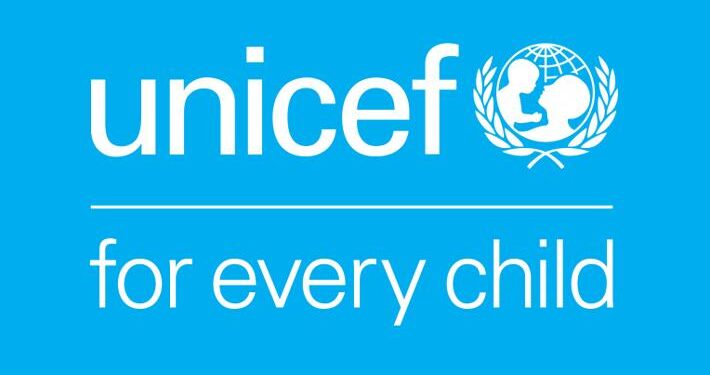In a compelling appeal that echoes the urgent need for child welfare, UNICEF has called on the Kano State government to prioritize child-centered budgeting in its financial plans. As Nigeria grapples with myriad challenges impacting its youngest citizens, the international organization emphasizes that a significant portion of the state’s budget should be allocated to initiatives directly benefiting children. This call comes amid growing concerns over child malnutrition, education deficits, and health care accessibility in one of the country’s most populous regions. By advocating for child-centered policies, UNICEF aims to ensure that children in Kano are not only recognized as a priority but are afforded the resources necessary to secure a brighter future. The implications of this initiative resonate beyond economic considerations, underscoring the critical importance of investing in the foundations of society—its children.
UNICEF Calls for Enhanced Allocation of Resources to Support Child Welfare in Kano State
The United Nations International Children’s Emergency Fund (UNICEF) has emphasized the pressing need for the Kano State government to enhance its budgetary allocations toward child welfare initiatives. As the region continues to face numerous challenges in health, education, and nutrition, UNICEF’s appeal underlines a critical observation: without adequate investment in child-centred services, the future of millions of vulnerable children remains at risk. With the state’s population predominantly composed of young individuals, it becomes imperative for authorities to commit to financial strategies that prioritize the needs of this demographic.
In its latest report, UNICEF highlighted several key areas where increased funding could significantly impact child welfare, including:
- Healthcare Services: Expansion of maternal and child healthcare programs to reduce mortality rates.
- Education Access: Improvements in the quality of education and infrastructure, particularly in rural areas.
- Nutrition Programs: Initiatives aimed at combating malnutrition and promoting healthy diets among children.
This call for action aligns with UNICEF’s broader mission to ensure that every child has the opportunity to thrive. By adopting a child-centred budgeting approach, Kano State can move towards sustainable development, ensuring that investments yield long-term benefits for its youngest citizens.
Demand for Child-Centred Budgeting: Addressing the Needs of Vulnerable Populations
The call for a budget that places children at the forefront is more urgent than ever, especially in Kano State where vulnerable populations often face systemic barriers to essential services. UNICEF emphasizes that by allocating financial resources specifically aimed at addressing the unique needs of children, the government can significantly improve their overall well-being and future prospects. This proactive approach not only enhances access to education and healthcare but also strengthens community frameworks that support child welfare. Among the key areas of focus should be:
- Education: Ensuring that schools are well-funded and accessible.
- Healthcare: Expanding child healthcare services and vaccination programs.
- Nutrition: Implementing initiatives to combat malnutrition among children.
- Child Protection: Increasing resources for safeguarding vulnerable children from abuse and exploitation.
To facilitate a clearer understanding of the impact of child-centred budgeting, a comparison of current spending versus recommended allocations serves as a useful guide. Below is a simple breakdown of suggested budget allocations to various child-related initiatives:
| Budget Area | Current Allocation (₦ Million) | Recommended Allocation (₦ Million) |
|---|---|---|
| Education | 1,500 | 3,000 |
| Healthcare | 800 | 2,000 |
| Nutrition | 400 | 1,200 |
| Child Protection | 300 | 700 |
This clear depiction of financial priorities underscores the necessity for Kano State to adopt a budgeting framework that genuinely reflects the needs of its children. With targeted funding and proper implementation, the positive effects on the community’s most vulnerable members can be profound, fostering a healthier, more educated, and resilient future generation.
Strengthening Education and Health Services: UNICEF’s Recommendations for Kano’s Budget Priorities
UNICEF has issued a powerful call to action for the Kano State government, urging the prioritization of education and health services in the upcoming budget. This initiative is aimed at fostering a child-centred approach that ensures essential resources are allocated to enhance the well-being of children and their families. Key recommendations include:
- Increased Funding for Education: Allocate more resources towards improving school infrastructure and providing quality teaching materials.
- Health Service Accessibility: Expand health facilities, particularly in rural areas, to improve child and maternal health outcomes.
- Nutrition Programs: Implement comprehensive nutrition programs to combat malnutrition among children.
- Community Engagement: Involve local communities in decision-making processes regarding education and health services.
By integrating these recommendations into its budget framework, Kano State can significantly advance the educational and health landscape for its youngest population. UNICEF emphasizes that investing in these sectors is not just a moral obligation but also a pragmatic approach to secure the future of the state. A well-balanced budget that reflects these priorities will facilitate social development and contribute to the overall economic growth of Kano. Investing in children today will yield long-term benefits for the society at large.
Wrapping Up
In conclusion, UNICEF’s urgent call for Kano State to prioritize child-centred budgeting underscores the critical need to invest in the future of Nigeria’s youngest generation. As the state grapples with challenges that impact its children’s well-being—such as health care, education, and nutrition—this advocacy serves as a timely reminder of the responsibilities that lie with the government and stakeholders. By adopting a budgeting approach that places children at the heart of financial planning, Kano State can pave the way for sustainable development and a brighter future for its youth. The commitment to effectively allocate resources towards meeting children’s needs not only aligns with national and international standards but also reflects a vision that values and invests in all aspects of child development. As the conversation around budgetary priorities continues, the call for action from UNICEF highlights the collective responsibility to ensure that every child in Kano has access to the opportunities necessary to thrive. The time for change is now.














